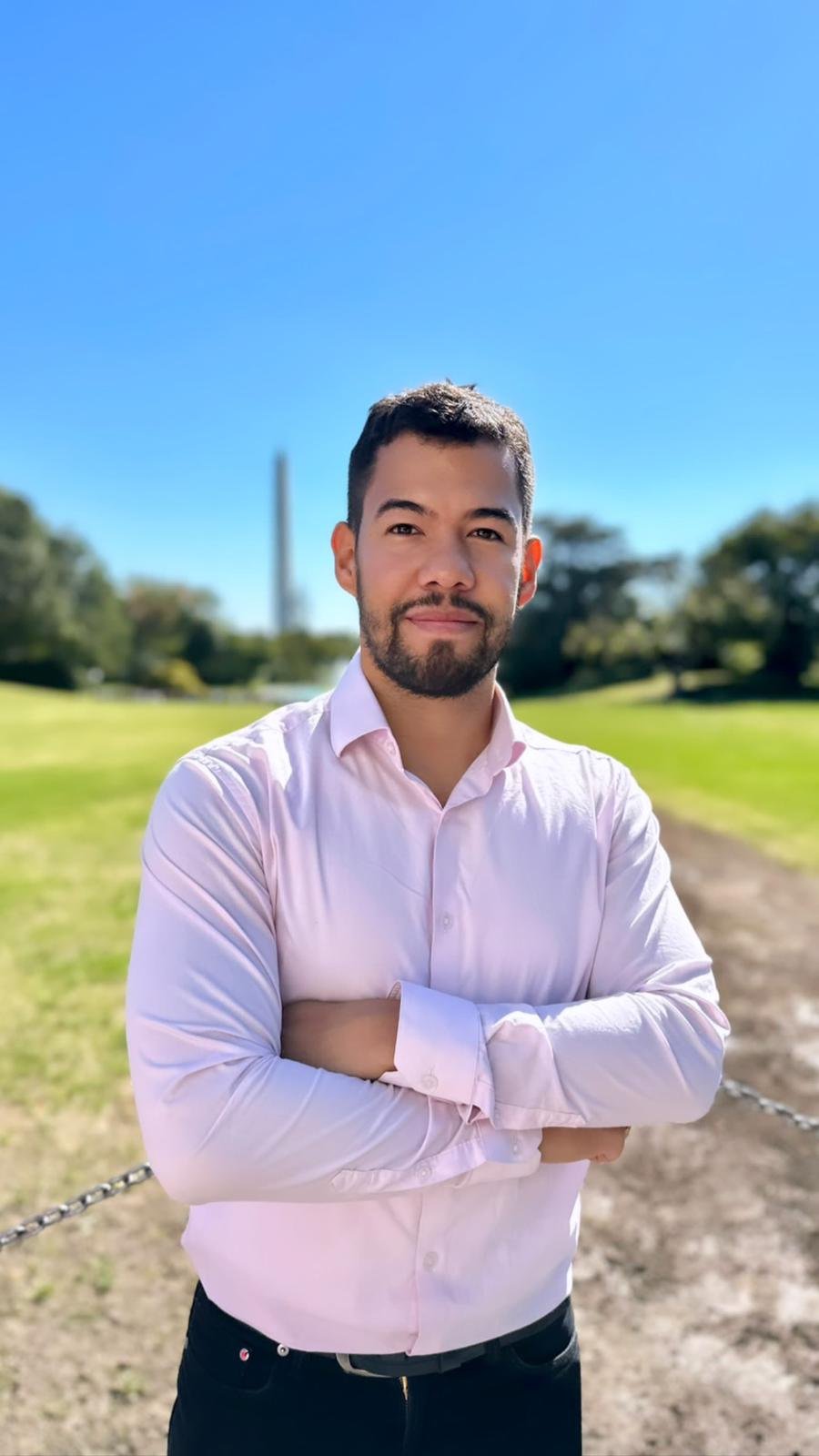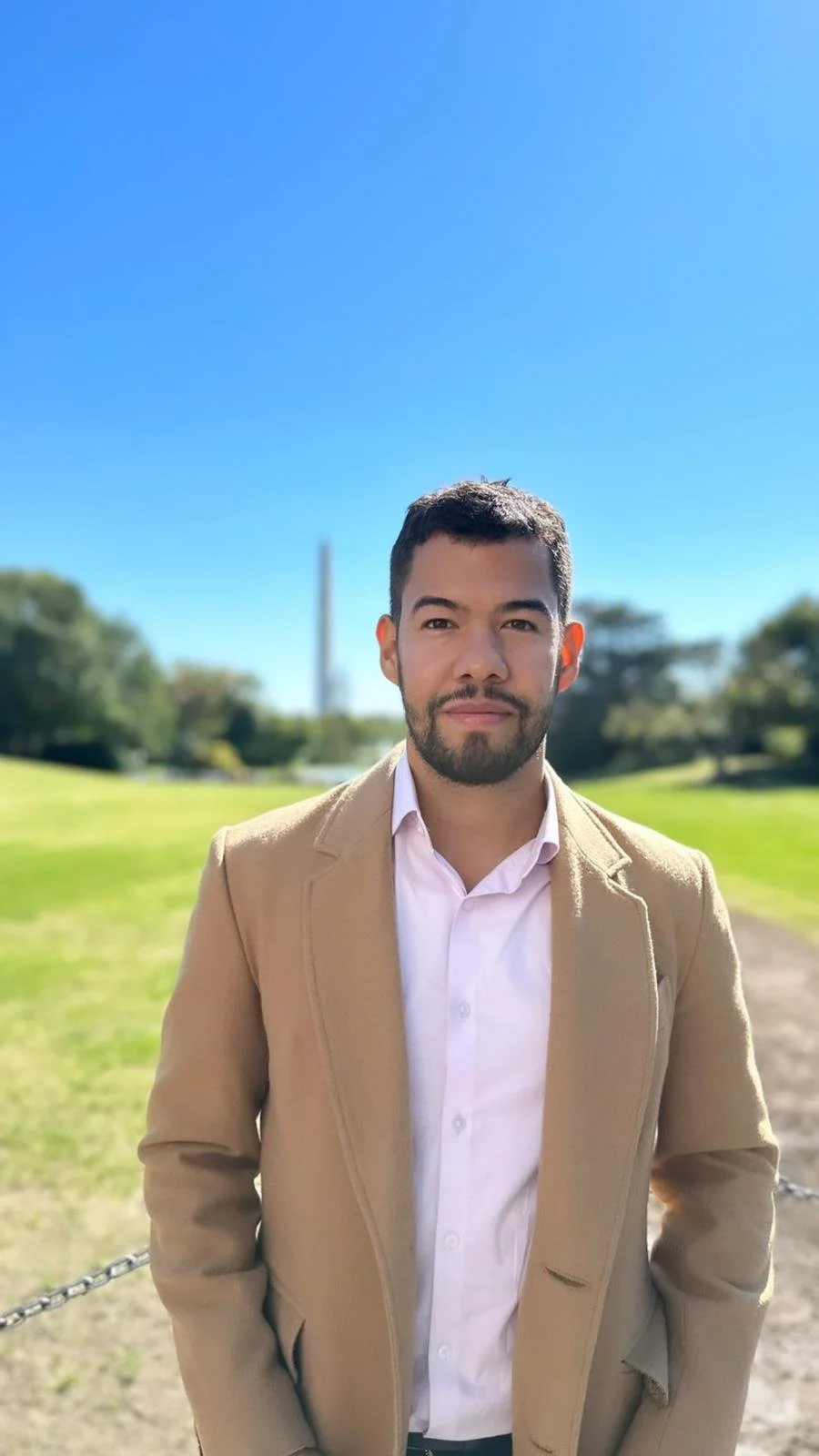"A Journalist Must Have the Courage Not to Be Intimidated, No Matter Who the Interviewee Is."

Anderson Simanca is a Emmy Award-winning journalist, who works as news producer for NTN24, international channel that airs in more than 20 countries around the Americas. As part of the bureau in Washington since 2021, he is in charge of the executive production of the prime-time show Cuestión de Poder, and the political morning show Club de Prensa.
He also produces and distribute content for mass media, digital platforms and informative impact podcasts. For over nine years, he have been covering news about the White House, the Capitol, and other centers of power.
As a foreign journalist, how did your journey begin in the U.S.?
Anderson Simanca
I have worked with the international news channel NTN24 for nine years. In 2021, and after having covered from distance dozens of presidential elections in Latin America, two in the United States, world summits and other significant events of regional impact, I finally had the opportunity to come to Washington to be part of the main team in the United States, as executive producer.
What is the most important part of your job?
As we say in my country, Colombia, my job is to put the house in order! As executive producer, I manage budgets, and make editorial decisions on content and guests for NTN24's high-level programs in the United States. In addition, I am responsible for the company's podcast production, our media's digital bet.
What effect did your experience as a foreign journalist in the U.S. have on your perspective of America?
It is common to hear that Americans see Latin America as their backyard. And it's true. But it is also more complex than that. I have come to realize that in Washington, the reality is global, that the decisions made here do have an impact on developing countries, even if the information focus is not centered on it. And to go deeper into that impact is our task as journalists.
What lessons have you learned over the years of working as a foreign journalist in Washington, D.C.?
The main lesson has been that the world is interconnected, but decisions are still made by a few. And it is very important to be where those few are. A journalist needs to be multimedia, it is not an option. The reality is that news is moving so fast that it is necessary to be where the facts are happening in order to react with all the tools at your disposal: research, sources, editing, and reporting.
Can you recall a story you did well and one you did not? What did you learn from this experience?
During the pandemic, my team and I set out to identify the most common internet myths about covid-19 vaccines. A crusade against misinformation. After identifying them, we sought out the most relevant experts to debunk them. Statistics showed that this work helped to reduce mistrust towards science. I am proud of that work. Learning from mistakes is also very important. Even more valuable than celebrating victories. I vividly remember my first meeting for an interview with a president. It was in Colombia. I was a young journalist at an international event. I was not able to ask the questions I wanted to ask. I learned a lot from that. I gained the courage not to be intimidated, no matter who the interviewee was.
What do you consider to be the most challenging aspect of your job?
In an era of so much noise, polarization, getting the right voices to cover a story really makes a difference. Finding and creating a relationship with those valuable sources is the most relevant part of my job.
Can you offer any advice to aspiring foreign journalists from around the world who wish to work as correspondents in the United States?
Diving into the world of politics is a guilty pleasure. And it is necessary. For that, reading and keeping up to date with the events of international reality is a must.

